



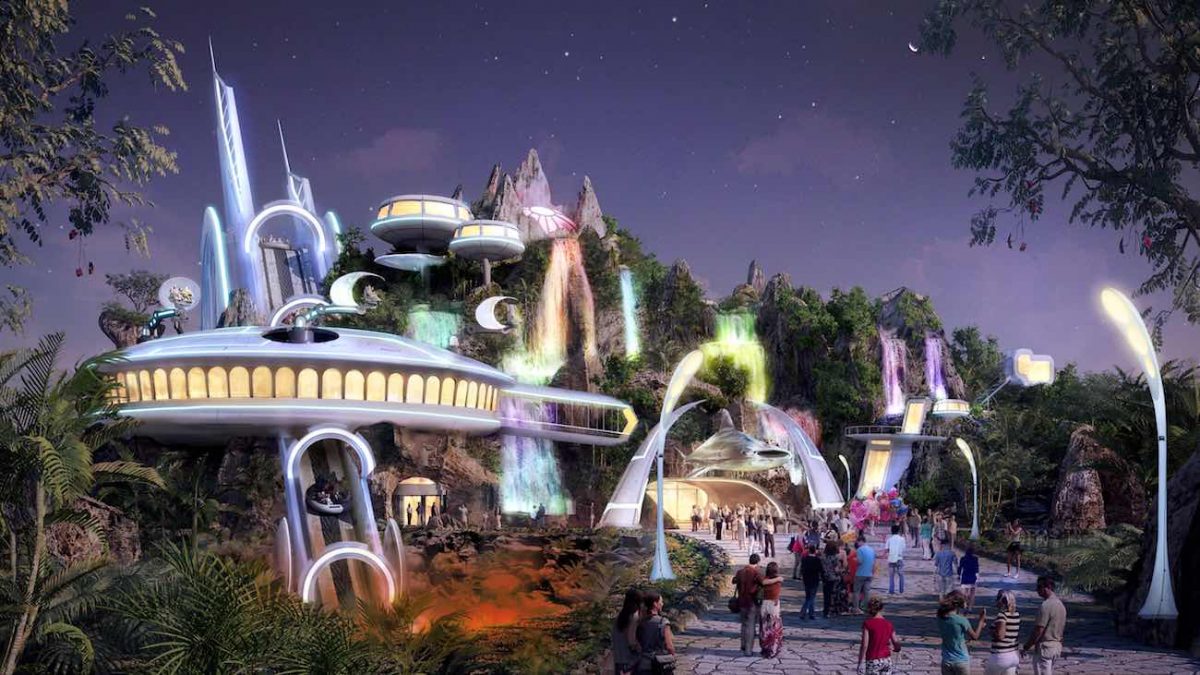
Legacy GGE is a global leader in entertainment design and creating attractions. The company provides a range of services from concept design and master planning to show development and project management. Its work can be seen in theme parks, water parks, aquariums, casinos, hotels, retail parks, live shows and more.
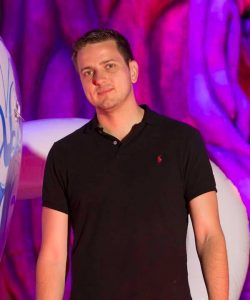
Taylor Jeffs is the president and chief creative officer at Legacy GGE, which was previously known as the Goddard Group. He has been with the firm since its beginnings.
His journey to join the firm started at three years old in California, when he became obsessed with theme parks. Growing up in Orange County, he had a lot of choices, from Disneyland to Knotts Berry Farm.
“I was obsessed from when I was three years old,” he said. “I looked for a way to work at Disneyland, as soon as I could.
“They had a policy that you had to be seventeen years old and a graduating high school senior to get a job. So I found this loophole where I could start working there a couple of days a week at fifteen. It was through the ROP program, where you got high school credits instead of money, which was kind of fun.”
Jeffs started out working in the kitchen at the Stage Door Café in Disneyland. Working his way up, he eventually became a tour guide.
“All the while I was a fan of Gary Goddard’s,” he said. “I reached out to him and stayed in touch over the years. After 9-11 his big company, Landmark Entertainment Group, had collapsed.”
Gary Goddard is a veteran of the entertainment design industry. After Landmark Entertainment, he founded Gary Goddard Entertainment in 2002, which would subsequently become the Goddard Group and Legacy GGE.
But in 2002, at its start, Goddard had no idea what it would become.
“The intention of this company was to be more of a consultancy, to focus on small projects,” Jeffs said. “I don’t think he intended to rebuild into a larger company at that point.”
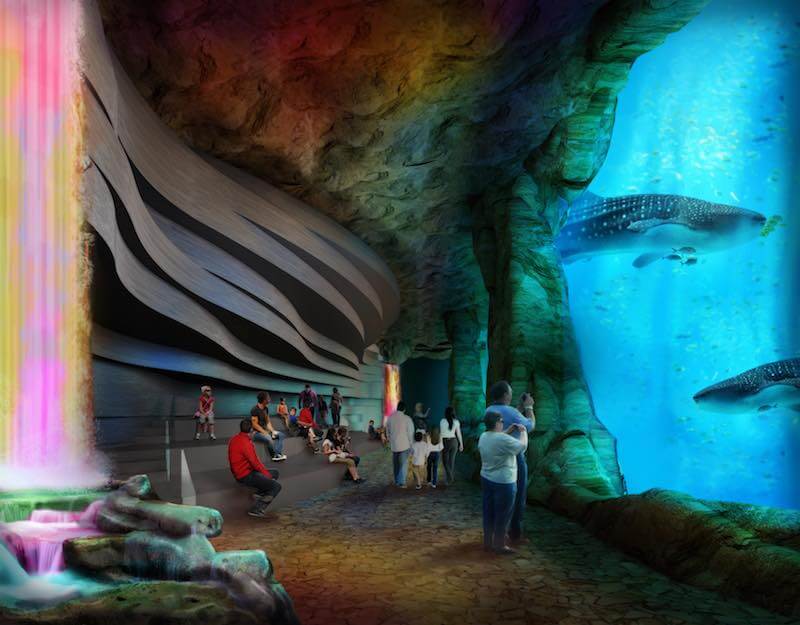
GGE’s first project was the Georgia Aquarium followed by a booth for the IAAPA trade show at Orlando in 2002. At the time, the company didn’t have any employees. Jeffs volunteered to fly himself out and work for free and Goddard took him up on the offer.
“It was very grass-roots, start-up, ground floor kind of stuff,” Jeffs said. “With only a few of us in the office, we shared with other companies. I was answering the phones, Gary was in his office. We had an accountant a couple of days a week and we just went from there. As the industry recovered and grew we built this company slowly into what it is now.”
The model of the company now is very different from Landmark’s structure.
“We’re not focused on being a large company,” Jeffs explained. “We’re just focused on being a good company. Since it was formed in 2002, we have opened over 50 projects around the world. We’ve been very lucky to have a very high success rate in terms of projects from design to being built.”

He attributes some of that success to keeping the company deliberately small. This allows the team to pick and choose its projects and partners. Legacy GGE only ever has three to four projects on the go at any given time. Larger companies will often have a dozen or more.
“We only have one team,” Jeffs said. “So we like to pick good projects with good operators and really focus on making those great. We learned our lesson back in 2008 to 2010, when we took on more projects then we should have. That taught us to keep it small, and to focus on the quality.”
The Georgia Aquarium, which opened in 2005, was a great starting project. However, GGE’s real breakthrough came with Galaxy Casino in Macau, which opened up in 2011.
“That really has been our biggest calling card and the launching point of this brand in Asia. Ever since it opened we have been in Asia at least once, if not twice, a month,” Jeffs said.
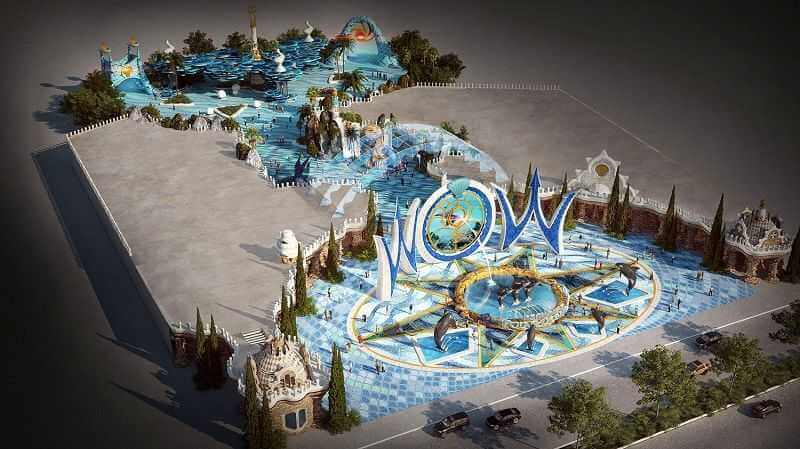
The company went on to do another casino in Macau, Studio City.
“That was a really neat one,” he said. “I think something that we’re very proud of is that we’re diverse, so will also do things like Broadway theatre.”
The firm won a Tony award for the 2009 production of the hit musical Hair. It has also worked on music festivals, museums, aquariums and more.
“We basically tackle anything entertainment-based,” Jeffs said.
Legacy GGE is currently working on an animated series with a partner in Asia.
“This is a great thing. It actually started out as a theme park project,” Jeffs explained. “There’s such a big demand for intellectual properties in theme parks and there are only so many that are available.”
Rather than spend money to license one of these intellectual properties, the firms’ partner wants to develop its own.
“We think this is a tremendous idea,” Jeffs said. “It’s theirs so they control it completely, with no licensing or approvals or loss of revenue. We think that’s a brilliant idea for clients if they are really committed to it.”

The group intends to launch the intellectual property as a television series with the characters also appearing in theme parks. While he couldn’t give away too many details about the project, Jeffs couldn’t hide his enthusiasm.
“Sadly, I can’t say even which country it is in, but it’s a wonderful idea to create your own IP. Do it really well and then cross utilize that in a way you fully control and, hopefully, benefit from.”
Another interesting and innovative enterprise is the forthcoming Shanghai Haichang Ocean Park project. More than just a sea life park, it will be dynamic in its multiple offerings.
“We have a great Intamin launch roller coaster aimed at families,” Jeffs said. “We have the world’s longest rapids ride, which is really neat. There’s a train ride, there is an aerial skyway gondola ride, and some other family rides. So it’s much more than just a sea life park, which I think will broaden its appeal and make it even more competitive.”
Legacy GGE started working on Shanghai Haichang Ocean Park five years ago. Their client is Haichang, which operates aquariums throughout China.
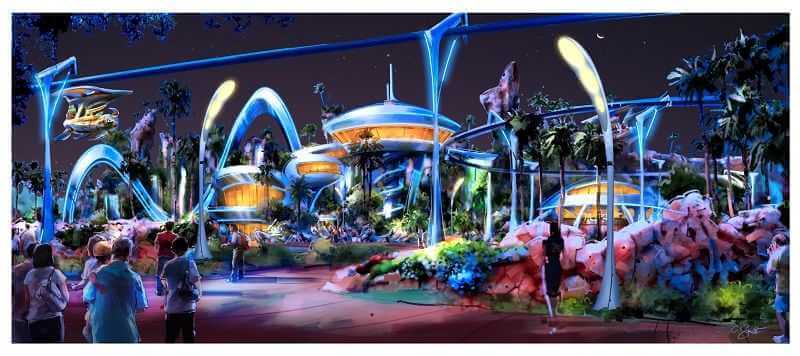
“We saw what they did and were very impressed, so we started working with them,” Jeffs said. “What we didn’t know at the time was that they’d hired three firms to design different concepts for this park.”
The project had a lot of attention on it and Haichang wanted to make sure they got it right. According to Jeffs, it involved one of the largest private land acquisitions for 20 years in China. The land was in a prime location, around a 30-minute drive from Shanghai Disney Resort. The Chinese government is intent on building the region into a tourism center.
“So, unknown to us, there were three different concepts,” Jeffs continued. “We presented ours, and, luckily, the government chose it. So we spent the next year-and-a-half or so designing the park, finishing the concept and schematic design, in July 2015.”
The park is expected to open in September this year.
Shanghai Haichang Ocean Park will be the first marine attraction in the region. The major aquariums and sea life attractions in China are located in the south. While the northeast of the country is the area with the greatest population density, it lacks a world-class marine attraction.
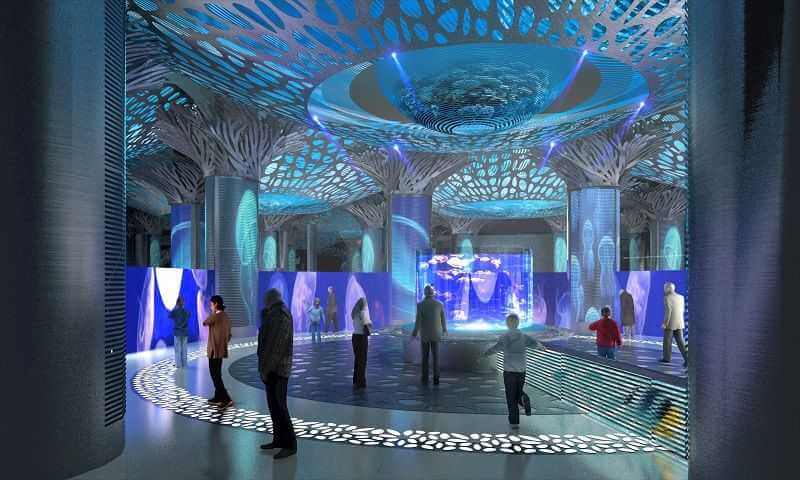
“So when this park opens in September, it’s going to be the first time that hundreds of millions of people have been able to see whale sharks, or orcas, or beluga whales, or all these other species which are going to be part of the park,” Jeffs said.
“For someone who has lived their life and now, for the first time, sees a killer whale, that is going to be very powerful.”
Some 330 million people live within a three-hour drive of the park. Not surprisingly, this has Legacy GGE’s client rather optimistic.
“When we were working on it, the original attendance estimate was 3.2 million people per year,” he said. “They have recently raised that to 5 to 6 million because Shanghai Disneyland is doing so well. And they are planning on offering the general admission price from 30% to 40% lower than Shanghai Disneyland.”
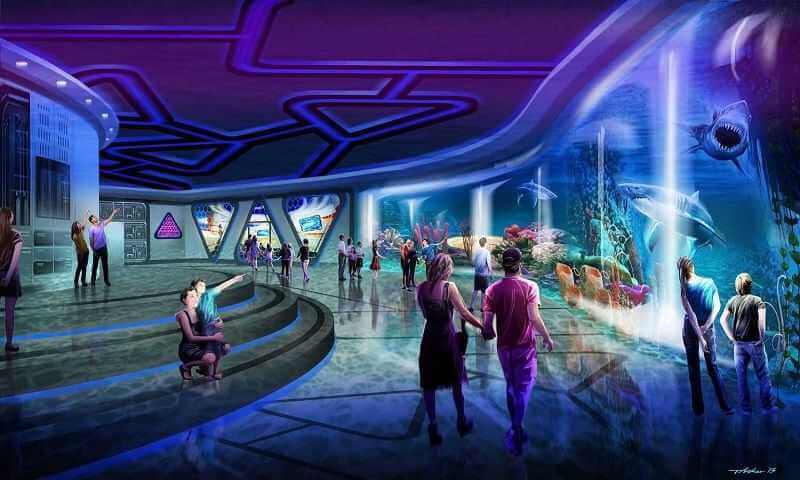
Legacy GGE is aware of the ethical debates around keeping sea mammals in captivity. Jeffs said that team spent a lot of time debating whether or not to get involved in the project.
“I think what it came down to is the fact that this project is going to happen, with or without us,” he said. “And if it happens with us, we can bring in our western animal husbandry people and design consultants. And design the most modern, humane habitats for these animals.
“They are going to happen no matter what. So if we can influence that in a positive direction, I think it’s a positive thing.”
Let us know if you have any questions by using the contact form below.